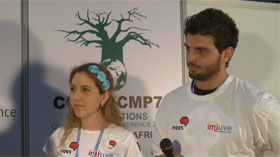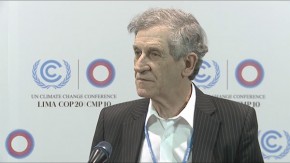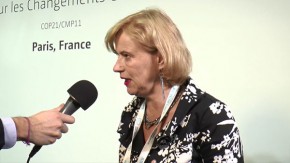Rio Conventions Pavilion, CBD COP11 (11/10/2012) – Kristina M. Gjerde, Senior High Seas Advisor at the IUCN’s Global Marine and Polar Programme, outlines the biodiversity and conservation challenges faced on the High Seas.
Gjerde lists the problems faced on the high seas, classified as anywhere more than 200 nautical miles from shore. He names overfishing and illegal fishing, human waste and in particular climate change as the gravest threats to marine biodiversity.
Gjerde warns that climate change will have a devastating impact on the high seas, both by increasing water temperatures, creating areas of reduced oxygen where fish can no longer thrive and through ocean acidification, which is especially damaging to coral reefs.
Gjerde asserts that the Law of the Sea convention does not deal with biodiversity – a term not yet invented when the convention was written in 1982 – and that its existing measures have been poorly implemented. She argues that while government’s rights outlined in the convention have been well protected, the duties detailed in the convention have often been neglected.
However Gjerde has seen positive signs. She notes that the International Maritime Organisation has recently agreed new regulations to prevent dumping of waste from ships at sea. She regrets that even on this particular issue this is far from enough: the dumping of waste from land is still a major issue.










